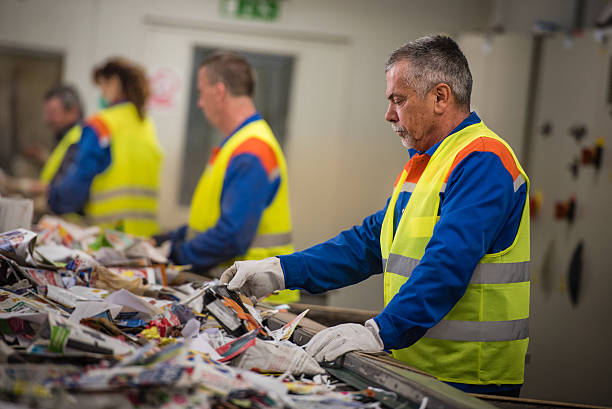In the pursuit of a greener and more sustainable future, cities around the world are embracing innovative approaches to waste management. One such pioneering initiative is the Charleston Green Project, which involved a new approach for recycling construction waste.
Why recycle construction waste in Charleston
Considered one of the most promising sectors from an economic point of view, construction in South Carolina is also the sector that generates the most waste. In fact, it generates more than 2 million tons of waste per year. It therefore at the same time causes environmental degradation and presents a health risk for populations. To do this, it is necessary to better manage waste from construction site work. If you are still hesitant about recycling them, find out everything you need to know about it here.
What is the importance of recycling construction waste
Perceived as a sustainable process, waste recycling makes it possible to treat and transform used products into new products. This aims to reduce the volume of waste and preserve natural resources. In the construction sector, this operation is a crucial issue for construction professionals, whether contractors or project owners.
It mainly consists of collecting residue from construction products. These will then be placed in a container and then sent to a recycling center to be recovered. Referred to as selective sorting, recycling in the construction sector aims to transform inert materials into a new product.
A source of benefit for the environment
As you might expect, demolition work, like general construction work, most of the time generates residual materials. These include:
- insulators
- rubble
- asphalts
- rocks
- tiles
- concrete
- plastic packaging
This waste can be very harmful to the environment. They also represent a real danger for the surrounding world, particularly due to the presence of asbestos and asphalt materials.
In order to limit the harmful consequences of this waste, it is sometimes essential to use a company specializing in recycling. This is an ecological gesture that will not only reduce pollution of the planet, but also make your city and your immediate surroundings cleaner.
A way to give waste a second life
Above all, recycling allows us to transform used materials. In the construction sector, its role is no less. The purpose of recycling construction site waste is to transform it in order to reintroduce it to the market. In this way, many inert wastes are reused in construction works.
This is, for example, the case of cement concrete and bricks which are most often used in the manufacture of backfill and road underlay. Some ferrous metals are also used to create railings, balconies and even fences. Furthermore, in carpentry, the manufacture of windows, doors and stair treads involves the use of worn boards and framing timber.
A good tip for saving money
The destruction of construction waste represents a major environmental issue. However, this is not the only consequence. In fact, the elimination of waste from a construction site can generate colossal costs. In order to reduce them as much as possible, it is preferable to opt for recycling to ensure effective and efficient waste management.
What does the law say about recycling construction site waste
According to the law of South Carolina, it is strictly forbidden to dispose of or incinerate waste from a construction site. Indeed, there are different types of construction waste in inert waste. This category includes:
- concrete
- ceramics
- earth
- bricks
- aggregates
These are not biodegradable and do not contaminate other materials. So, it is strongly recommended to recycle this type of residue.
Laws regarding the recycling of construction site waste
The recycling of construction site waste is subject to numerous rules. Thus, each type of waste according to its nature must be directed to the places indicated by law. For example, it is stipulated that producers and holders of construction site waste are legally responsible for their elimination under conditions which will impact neither human health nor the environment.
This regulation therefore requires producers of construction site waste to choose compliant companies that hold prefectural authorizations which will allow them to operate in the recycling and waste recovery sector. Despite these measures, more than 2,000 tons of waste in illegal dumps do not come from unscrupulous companies or individuals.
This state of affairs has a negative impact on the environment. The state authority seeks to remedy this through financial sanctions. The latter provide for a fine of $1,500 in the event of non-recycling. If it concerns professional waste, the amount of the fine can go up to $75,000.

